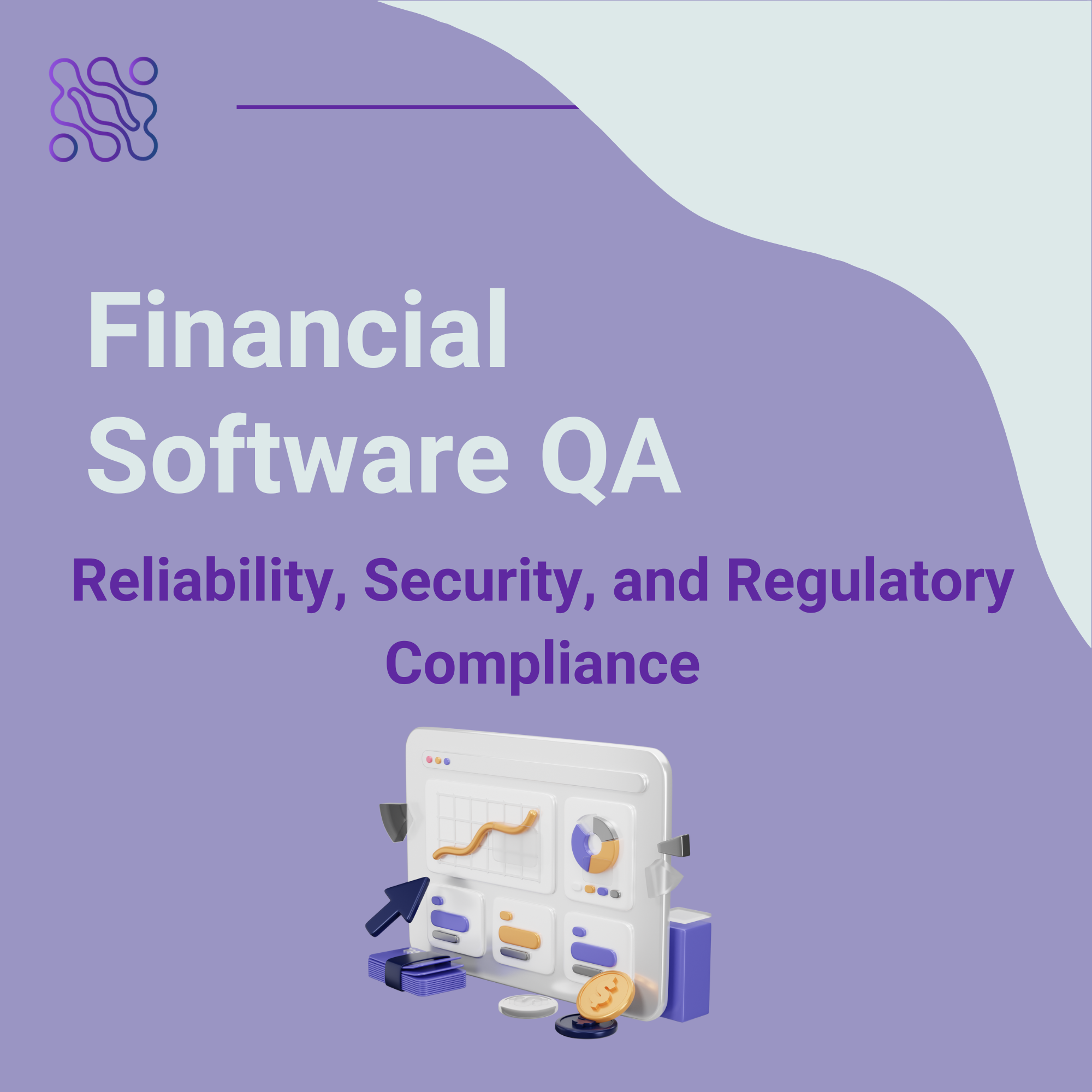Introduction
In the financial world, software isn’t just a tool; it’s the backbone of everything. From managing transactions to handling sensitive data, financial software plays a crucial role in how the finance industry operates. But here’s the thing: no matter how advanced the software is, if it isn’t reliable, secure, or compliant with regulations, the whole system can come crashing down. That’s where Quality Assurance (QA) comes in. It’s the unsung hero that ensures financial software not only works but works flawlessly, safely, securely, and within the bounds of the law.
So, in this article, let’s talk about QA in financial software. We’ll explore why QA is so critical, how it ensures financial software is reliable, and why it’s indispensable for meeting the regulatory requirements that keep everything running smoothly.
What is Financial Software QA?
At its core, financial software QA is all about making sure that the systems used in the financial industry work the way they’re supposed to, without bugs, errors, or glitches that could impact the accuracy and security of financial transactions. This process is comprehensive, involving testing to make sure that the software is functional, secure, and complies with important regulations like HIPAA (for health-related data) and SOX (for public company financial reporting).
In simple terms, QA testing for financial software ensures that everything is up to snuff; whether that’s processing a transaction correctly or ensuring that sensitive data stays protected. No shortcuts are allowed, and this constant, rigorous testing is key to maintaining the trust that users place in financial institutions.
Ensuring Reliability in Financial Software
Reliability is everything when it comes to financial software. One slip-up, whether it’s a delayed transaction or an incorrect report, can have massive consequences. QA testing focuses on making sure the software performs consistently and accurately. For example, QA teams test how well the software handles transactions, data storage, and reporting. This means catching potential problems before they lead to costly errors. Imagine a bank sending out the wrong balance to customers; that’s not something anyone wants to experience.
By conducting reliability tests regularly, QA teams ensure that financial software can handle everything that’s thrown at it, minimizing the risk of system failures or performance issues when the stakes are high.
Security of Financial Software
When it comes to financial software, security isn’t just a feature; it’s a necessity. QA is the team that makes sure the software is safe from hackers, data breaches, or any vulnerabilities that could expose sensitive information. Since financial software handles personal, transactional, and even health-related data, the stakes are incredibly high.
Security testing is multifaceted. QA teams perform tests to assess everything from data encryption to the software’s ability to defend against cyberattacks. One important part of this is penetration testing, where ethical hackers try to break into the system to identify weaknesses. It’s all about making sure that customer information stays protected at all costs, and that the financial software doesn’t become an easy target for cybercriminals.
Compliance with Financial Regulations
Here’s where things get a little more complex: financial software isn’t just about being functional; it has to be compliant with a bunch of regulations that change depending on the type of financial software and the country it operates in. That means QA teams also need to make sure that everything is in line with the laws and regulations governing the financial industry.
Let’s break it down:
HIPAA Compliance
For financial institutions dealing with health-related data (think health insurance claims, medical billing, etc.), HIPAA compliance is a must. QA teams have to ensure that the financial software follows HIPAA guidelines for securing and handling sensitive health data. That includes regular risk assessments, auditing the software’s security measures, and making sure that data privacy is upheld.
SOX Compliance
For publicly traded companies, SOX (Sarbanes-Oxley Act) compliance is non-negotiable. This law requires accurate financial reporting and the implementation of strict internal controls. QA testing for SOX compliance focuses on making sure the financial software is following these rules, which means it has to be thoroughly tested for any flaws that might affect the accuracy of financial reporting or internal controls.
Conclusion
The importance of QA in financial software can’t be overstated. It’s about more than just finding bugs; it’s about ensuring that financial software is secure, reliable, and compliant with regulations like HIPAA and SOX. Without QA, we’d be left with systems that are prone to errors, security risks, and non-compliance, and that’s a recipe for disaster in the financial sector.
At BetterQA, we understand how critical QA is to the success of financial software. With constant changes in the industry, we stay ahead of the curve, making sure that every piece of software we test meets the highest standards of performance, security, and compliance. After all, when it comes to financial software, anything less than excellence just won’t cut it.
Stay Updated with the Latest in QA
The world of software testing and quality assurance is ever-evolving. To stay abreast of the latest methodologies, tools, and best practices, bookmark our blog. We’re committed to providing in-depth insights, expert opinions, and trend analysis that can help you refine your software quality processes.
Delve deeper into a range of specialized services we offer, tailored to meet the diverse needs of modern businesses. As well, hear what our clients have to say about us on Clutch!
